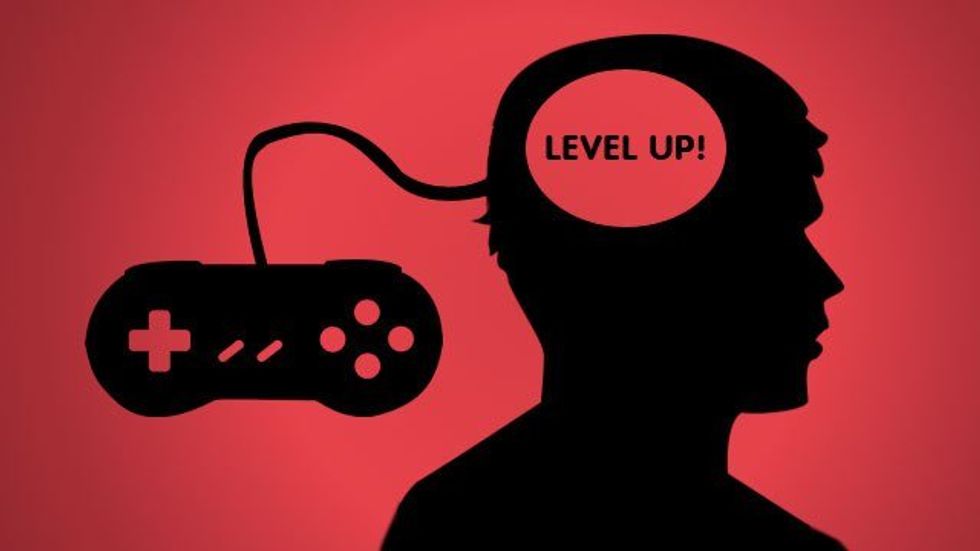Many people, especially adults from older generations, assume that the rise in popularity of video games is a serious concern for the future of modern society. After all, they are bad for mental and physical health, right?
Not necessarily. According to a growing body of scientific research, video games can significantly improve mental and physical health in many areas.
First of all, certain video games can be very helpful in reducing depression symptoms. An East Carolina University study found in 2011 that playing casual and nonviolent video games reduced depressive symptoms by as much as 57 percent. The researchers stated that "[t]he results of this randomized clinical study clearly demonstrate the intrinsic value of certain casual games in terms of significant, positive effects on depression and anxiety symptoms ... In our opinion these findings support the use of prescribed casual video games for treating depression and anxiety as an adjunct to, or even replacement for, standard therapies including medication." This was carried out as a follow-up to another ECU study in 2008 that found the same results: casual, nonviolent video games can help reduce depressive symptoms and positively impact mood in general. Video games specifically designed to help mood have even surpassed traditional therapy methods such as Cognitive Behavioral Therapy in treating depression, according to New Zealand researchers.
Second, certain video games can improve thinking skills. Scientists from Queen Mary University of London and University College London found in a 2013 study that playing real-time strategy games such as "StarCraft" can improve cognitive flexibility, which is "a cornerstone of human intelligence [that] is not a static trait but can be trained and improved using fun learning tools like gaming."
Another study conducted in 2013 by researchers at the Max Planck Institute for Human Development and Charité University Medicine St. Hedwig-Krankenhaus found that playing "Super Mario 64" directly caused increases in the brain's grey matter in regions responsible for "spatial navigation, memory formation, strategic planning, and fine motor skills of the hands." Study leader Simone Kühn stated that this study "proves that specific brain regions can be trained by means of video games." The researchers also suggested that video games could be used to help patients with mental disorders associated with less grey matter in those regions, such as "schizophrenia, post-traumatic stress disorder, or neurodegenerative diseases such as Alzheimer’s dementia."
Video games also have highly beneficial effects on creative thinking and maybe even more so than reading, according to Lucy Prebble, one the country's leading playwrights. Recent research appears to be backing Prebble up on her bold claim, although a direct comparison between reading and gaming has yet to be done. Researchers at Michigan State University's Children and Technology Project found in a 2012 study that "almost any computer game appears to boost a child's creativity."
For even more information on how video games benefit our brains, check out the Wall Street Journal's article on the subject: "When Gaming Is Good for You."
All of those studies primarily address mental health, however. Video games cannot possibly have a beneficial impact on physical health, can they? In many areas, actually, multiple lines of research have shown that they can, often in highly counterintuitive ways that defy what many consider to be common sense.
For example, playing certain kinds of video games can improve vision. In a 2009 study published in Nature Neuroscience magazine, researchers found that playing action video games significantly improved the contrast sensitivity function (CSF) of vision, which is the measure of how well people can differentiate between different shades of grey on a solid-color background. This is no minor detail when it comes to vision, though, as described by the study's abstract: "The contrast sensitivity function (CSF) is routinely assessed in clinical evaluation of vision and is the primary limiting factor in how well one sees [emphasis added]. CSF improvements are typically brought about by correction of the optics of the eye with eyeglasses, contact lenses or surgery. We found that the very act of action video game playing also enhanced contrast sensitivity, providing a complementary route to eyesight improvement."
Also, another study carried out at Deakin University in 2009 found a correlation between motor skills and time spent playing interactive video games (e.g. Wii games) in a group of 53 preschoolers. The more time that children spent playing these games, the better their object control skills were. While this study did not establish that the video games directly caused an increase in motor control skills, it certainly did raise that question.
These results make sense in the context of several studies that have found correlations between video game playing and surgical skills. One 2007 study showed a strong link between video game skills and surgical skills, suggesting that "[v]ideo games may be a practical teaching tool to help train surgeons," and a 2010 study found that surgeons who were skilled at playing several Nintendo Wii games were much better surgeons than those that were not. Also, researchers at the University of Texas at Galveston found in a 2012 study that high school sophomores who played two hours of video games per day outperformed actual medical students using virtual surgery tools. Some have suggested taking advantage of this effect by creating specific games to train surgeons with.
With that said, these studies do not suggest that playing video games every day for hours on end is necessarily beneficial. As always, any activity done in excess can have detrimental effects. However, it is objectively false to suggest that video games are always or even generally bad for your health.





















